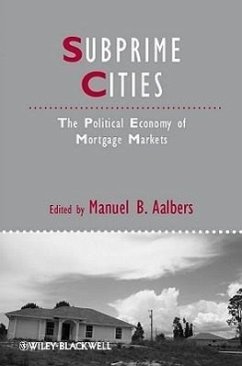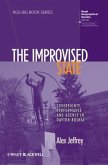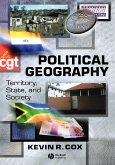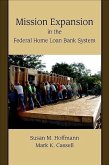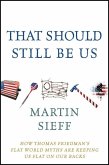The study of mortgage markets has traditionally been the domain of economists. During historic times of turmoil and change, however, social scientists of various stripes are often called upon to shape our understanding of ways mortgage markets function. We are presently experiencing an episode of severe turmoil and change. How did we get here? Subprime Cities: The Political Economy of Mortgage Markets presents a collection of works from social scientists that offer important insights into what is happening in today's mortgage market including the causes, effects, and aftermath of the "subprime" mortgage crisis. In addition to shedding light on how the current housing crisis has spread to other sectors of the economy, readings address the mortgage market itself and how problems have spread throughout mortgage and housing markets. Various chapters address changes that have resulted in the subprime mortgage crisis; others focus on the structural changes in the mortgage market, rather than on the crisis itself. Documentation of the geographical, social, and institutional inequalities associated with the crisis reveals how the recent mortgage boom created "subprime cities," and how the victims of the crisis are the product of deep structural inequalities. This book is a provocative wake-up call for us to reconsider the structures of housing finance and housing policy if we are to avoid another crisis.
"Aalbers has edited a commendable volume that makes a strongcase for the centrality of urban processes in crisis formation. Ithas implications for a number of subfields in politicalscience--including urban politics, economic and housing policyprocesses, race and ethnicity, politics and history, and federalismand intergovernmental relations--and should be read byscholars seeking to pinpoint the urban origins of the globalfinancial crisis, as well as by those with an interest in learningmore about the unavoidable and deepening connection between thefate of cities and the fate of nations." (Perspectives onPolitics, 1 September 2013)
"So its reading will benefit not only economicgeographers, but also sociologists, political scientists and, darewe say, economists." (Political Studies Review,8 January 2014)
"Aalbers has edited a commendable volume that makes a strong casefor the centrality of urban processes in crisis formation. It hasimplications for a number of subfields in politicalscience--including urban politics, economic and housing policyprocesses, race and ethnicity, politics and history, and federalismand intergovernmental relations--and should be read byscholars seeking to pinpoint the urban origins of the globalfinancial crisis, as well as by those with an interest in learningmore about the unavoidable and deepening connection between thefate of cities and the fate of nations." (Perspectives onPolitics, September 2013)
"The book will be extremely useful for advanced courses ineconomic geography, housing policy and related topics. It should bewidely cited in the ongoing debates over the subprime crisis aswell as in discussions of mortgage and housing markets moregenerally." (International Journal of HousingPolicy, 20 June 2013)
"Overall, the book is a must-have for not only thoseinterested in the economics, geography, and politics of thesubprime crisis or mortgage markets, but also those more broadlyinterested in economic geography more broadly, especially as itconcerns finance. The book will be extremely useful for advancedcourses in economic geography, housing policy, and related topics.It should be widely cited in the ongoing debate over the subprimecrisis as well as in discussions of mortgage and housing marketsmore generally." (International Journal of HousingPolicy, 2012)
There has, prior to the publication of this book on SubprimeCities, been very little concern for examining and interpretingthis sequence of events and explaining the role of urbanization andfinancialization (along with rent-seeking) in this whole dynamic.What this book does is to begin upon the complex task of exploringand explaining the urban roots of crisis formation in general andof the dynamics of the most recent crisis in particular. We havehere an astonishing and revelatory understanding of the urban rootsof the fiscal crisis.
--David Harvey, Graduate Center, City University NewYork
Subprime Cities reveals how the fate of metropolitanareas has long been and continues to be intricately intertwinedwith the opaque dealings of financial institutions. Moreimportantly, this book exposes deep, fundamental structuralbarriers that persist and must be challenged before we can bringsome rationality to financial service industries in a manner thatwill lead to more balanced and equitable development of thosecommunities.
-- Gregory D. Squires, George Washington University
"So its reading will benefit not only economicgeographers, but also sociologists, political scientists and, darewe say, economists." (Political Studies Review,8 January 2014)
"Aalbers has edited a commendable volume that makes a strong casefor the centrality of urban processes in crisis formation. It hasimplications for a number of subfields in politicalscience--including urban politics, economic and housing policyprocesses, race and ethnicity, politics and history, and federalismand intergovernmental relations--and should be read byscholars seeking to pinpoint the urban origins of the globalfinancial crisis, as well as by those with an interest in learningmore about the unavoidable and deepening connection between thefate of cities and the fate of nations." (Perspectives onPolitics, September 2013)
"The book will be extremely useful for advanced courses ineconomic geography, housing policy and related topics. It should bewidely cited in the ongoing debates over the subprime crisis aswell as in discussions of mortgage and housing markets moregenerally." (International Journal of HousingPolicy, 20 June 2013)
"Overall, the book is a must-have for not only thoseinterested in the economics, geography, and politics of thesubprime crisis or mortgage markets, but also those more broadlyinterested in economic geography more broadly, especially as itconcerns finance. The book will be extremely useful for advancedcourses in economic geography, housing policy, and related topics.It should be widely cited in the ongoing debate over the subprimecrisis as well as in discussions of mortgage and housing marketsmore generally." (International Journal of HousingPolicy, 2012)
There has, prior to the publication of this book on SubprimeCities, been very little concern for examining and interpretingthis sequence of events and explaining the role of urbanization andfinancialization (along with rent-seeking) in this whole dynamic.What this book does is to begin upon the complex task of exploringand explaining the urban roots of crisis formation in general andof the dynamics of the most recent crisis in particular. We havehere an astonishing and revelatory understanding of the urban rootsof the fiscal crisis.
--David Harvey, Graduate Center, City University NewYork
Subprime Cities reveals how the fate of metropolitanareas has long been and continues to be intricately intertwinedwith the opaque dealings of financial institutions. Moreimportantly, this book exposes deep, fundamental structuralbarriers that persist and must be challenged before we can bringsome rationality to financial service industries in a manner thatwill lead to more balanced and equitable development of thosecommunities.
-- Gregory D. Squires, George Washington University

